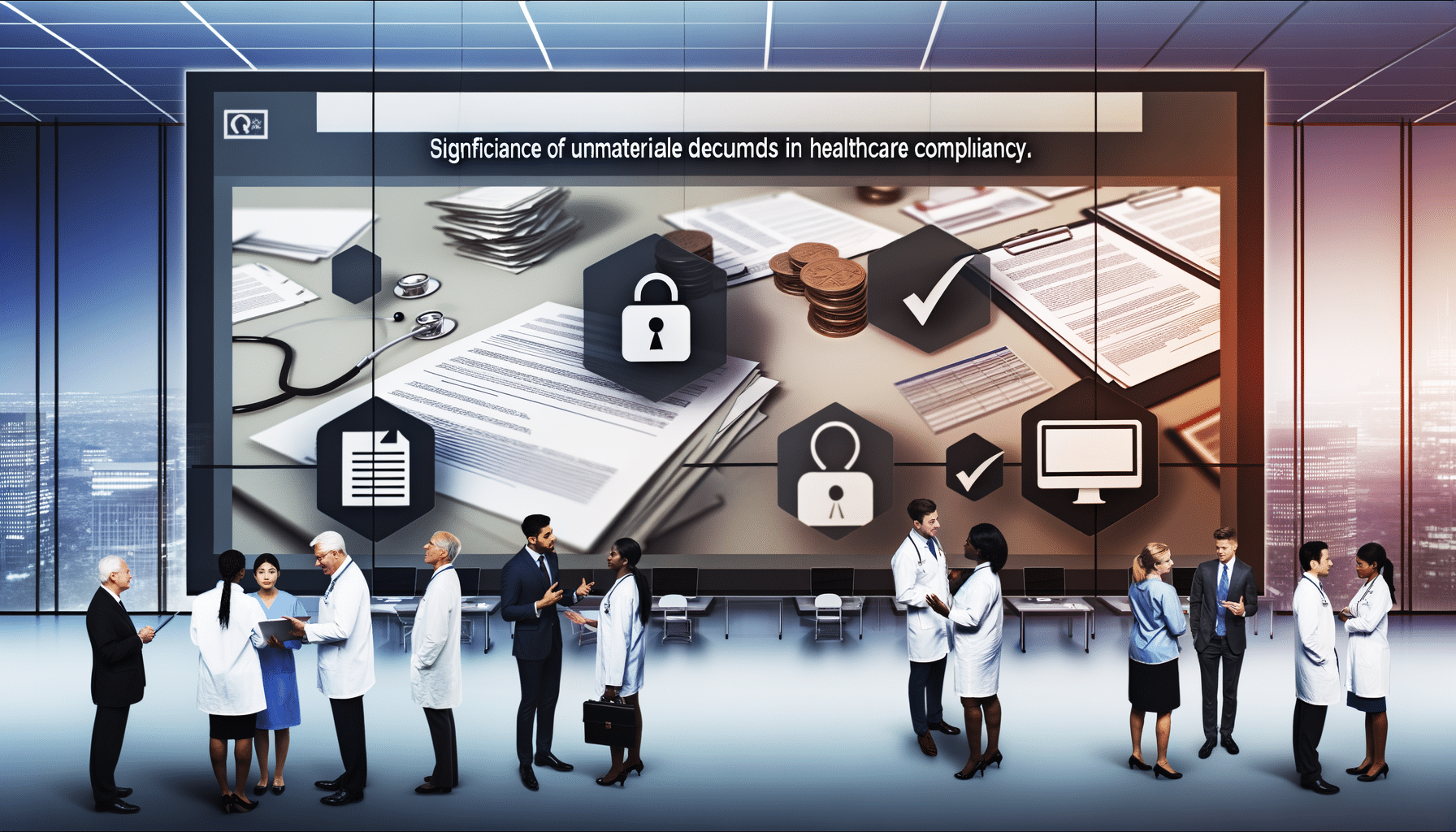- AI in Healthcare
- September 24, 2022
The Importance of Immutable Records in Healthcare Compliance

Understanding Immutable Records: A Game Changer in Healthcare Compliance
In today’s rapidly evolving digital landscape, one thing is clear—the healthcare industry is not exempt from the pressures and demands of technological advancement. Balancing patient care with the complex web of regulatory compliance is no small feat. This is where immutable records can make a significant impact.
For those of us navigating the realms of healthcare compliance, the concept of immutable records presents an intriguing opportunity. Having spent years at the intersection of technology and entrepreneurship, I’ve lived this transformation firsthand. Allow me to take you through why embracing immutable records is crucial for healthcare compliance.
The Rising Challenge of Compliance in Healthcare
Every practitioner and administrator in the healthcare sector is well-acquainted with the intense demands of compliance regulations. The likes of HIPAA and GDPR mandate vigilant care of sensitive patient information. However, as technology advances, so too do the risks associated with data breaches and unauthorized access. Compliance becomes not just a legal necessity but a critical component of maintaining trust between healthcare providers and patients.
In this complex environment, the immutable nature of records offers a robust solution. By ensuring that once a record is created, it cannot be altered, tampered with, or erased, these records cement their role as a reliable pillar for compliance assurance.
What Makes Records Immutable?
Think of immutable records like a fortress, each piece of data fortified by advanced technologies like cryptographic hashing and blockchain integration. Blockchain, in particular, underpins the immutability by creating a decentralized ledger. Every update to data gets chronologically recorded in blocks, each one linked to the next—rendering it practically tamper-proof.
Key Benefits of Immutable Records for Healthcare Compliance:
- Integrity and Trust: With immutable records, healthcare providers ensure their data’s integrity and, by extension, cultivate the trust of both regulators and patients.
- Auditability: Immutable ledgers simplify audits since every action taken on a record is verifiable through a transparent transaction log.
- Reduced Risk of Fraud: The inability to alter records after they’ve been created minimizes risks related to fraud and unauthorized manipulations.
- Operational Efficiency: Automating compliance tasks related to data integrity reduces manpower costs and allows teams to focus on patient care rather than administrative burdens.
Streamlining Compliance Management with Tech Innovation
So, how should the healthcare sector leverage this technology for compliance? Automated systems like RecordsKeeper.AI are changing the game by providing blockchain-backed, AI-powered platforms that handle everything— from categorizing records to fulfilling regulatory requirements seamlessly.
How do Immutable Records transform compliance management? By seamlessly integrating immutable record-keeping into healthcare workflows, organizations like yours can:
– Maintain real-time audit trails that are indispensable during regulatory reviews.
– Automate reporting and compliance checks, promoting proactive compliance rather than reactive fixes.
– Enhance data security, minimizing vulnerabilities associated with traditional record storage.
First-Hand Insights and Forward Thinking
Looking back at my journey in tech entrepreneurship, it’s fascinating to see how such disruptive innovations, once considered future-gazing, have become healthcare necessities. The principles of blockchain and AI have elevated mere record-keeping to strategic efficiency tools. As we continue to champion innovation in record management, my advice to healthcare stakeholders is clear: embrace these technologies sooner rather than later.
Ensuring Compliance, Securing the Future
In conclusion, the integration of immutable records into healthcare compliance strategies isn’t just a recommendation—it’s imperative. By leveraging the power of these innovations, we can secure patient data while achieving compliance with enhanced efficiency and reduced risk.
Join me as we continue to explore how technology can transform the standards of healthcare and enhance the patient-provider relationship. Follow my journey through these technological innovations, and let’s work towards a future where compliance is not a chore but a seamlessly integrated component of excellent healthcare delivery.
Follow me, and stay tuned for more insights on how we can navigate the exciting crossroads of healthcare and technology. Together, let’s embrace innovation for a compliant, efficient, and above all, transformative healthcare future.
Toshendra Sharma is the visionary founder and CEO of RecordsKeeper.AI, spearheading the fusion of AI and blockchain to redefine enterprise record management. With a groundbreaking approach to solving complex business challenges, Toshendra combines deep expertise in blockchain and artificial intelligence with an acute understanding of enterprise compliance and security needs.
Related Posts

Quick Filing Systems for Busy Clinics
Efficient filing methods for high-traffic medical offices.
- December 16, 2024

Handling Rush Requests for Medical Records
Managing urgent medical record requests efficiently.
- December 1, 2024
Archives
- January 2025
- December 2024
- November 2024
- October 2024
- September 2024
- August 2024
- July 2024
- June 2024
- May 2024
- April 2024
- March 2024
- February 2024
- January 2024
- December 2023
- November 2023
- October 2023
- September 2023
- August 2023
- July 2023
- June 2023
- May 2023
- April 2023
- March 2023
- February 2023
- January 2023
- December 2022
- November 2022
- October 2022
- September 2022
Want to get more content like this?
Signup to directly get this type of content to your inbox!!
Latest Post
Document Control for Equipment Maintenance
- January 20, 2025
Managing Records for Multiple Clients
- January 19, 2025
Handling Conference Documentation
- January 18, 2025
Setting Up Department Record Reviews
- January 17, 2025





